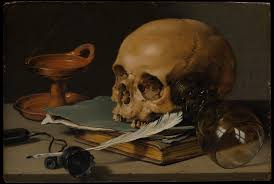I can confess that when I first heard Blackadder was being performed as a play at the Pilch, my immediate reaction was scepticism. How, I wondered, were they going to be able to condense four seasons of comedy television into a single evening? Not to mention that these four seasons themselves covered four separate and distinct historical eras, providing a veritable nightmare for stage design in the close confines of the Pilch. The biggest catch, of course, is that the original television Blackadder remains hilariously funny due to a series of excellent comic performances, which it would require a skilled cast of actors to replicate. It seemed a highly ambitious project, potentially exceeding the capabilities of university theatre.
It came as a pleasant surprise, therefore, that I found the production riotously funny and highly enjoyable. The secret to its success was a degree of prudent reserve. Rather than attempting, and inevitably failing, to cover the entirety of all of the series, Blackadder wisely limited itself to the plots of a single episode from each of the final three seasons. The decision to leave out the medieval section, which differs significantly in style from its successors, also seemed like a smart decision. The formidable challenge of set design was solved skillfully with a stripped-back set consisting only of the basic furniture required for the action, plain as to not decidedly be from any period, and augmented with small props to convey the particularities of each scene. These various clever solutions provided a solid backdrop on which the action could properly take place, and it did so splendidly.
The imposing final task, of being sufficiently funny, was met by a brilliant cast of actors, who proceeded to go above and beyond my expectations. Particular favourites were Leah Aspell as a consistently hilarious Baldrick, and Lucas Angell who stole the show as both Prince George and Lady Whiteadder. But Blackadder, is, as the name suggests, a show very much dominated by its lead character – and I could hardly have laughed harder at Susie Wridmann’s excellent performance, carrying all the cynical ‘cunning’ of Rowan Atkinson and giving it her own sharp twist to boot. These were just a few of the many fantastic performances which made this show one of the highlights of my week. There were, on occasion, slips – such as the sniggers from the cast at the sight of Tom Pavey as Melchett wearing fake eyebrows and a moustache – but these were expertly rescued by a moment of apparent improvisation from Alex Still as Captain Darling. After all, Blackadder is meant to be a comedy, and this only made it funnier.
I approached Blackadder with apprehension,. but I was wrong to. The cast delivered a pacy and sparking performance which had my chest aching with laughter by the end, and seemed to make the hour and a half it lasted fly by in no time at all. But, whilst the actors were impressive in their own right, they relied on a foundation of solid lighting and music, and particularly intuitive stage design. This was all completed, of course, by witty writing and undoubtedly skilled direction. Overall, it was certainly a very cleverly-composed play, and had cast my doubts aside within the first few minutes of performance. Most importantly, I had a great time.


